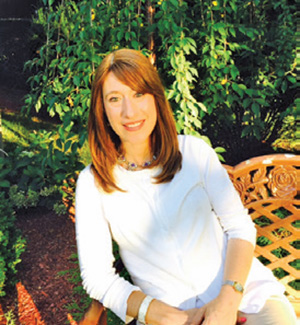
Tuesday morning.
As I quickly skimmed the lengthy Jewish census, there was one patient in particular who caught my eye:
Dan P., a 34-year-old male on the hospice floor.
I was about to leave my office to begin my patient visits when the phone rang.
“Hi. Is this the Jewish chaplain? My name is Mrs. P. My son, Dan, has been in the hospital for the past couple of days.” Immediately recognizing the name, I mentioned to Mrs. P. that I was just about to visit with her son. “I want to give you some of the background,” she explained. I was grateful for the call that came at the perfect time. I listened.
Dan was diagnosed with stage 4 colon cancer a couple of years ago and now appears to be at the end of his life. Though Mr. and Mrs. P. and their family were Catholic, Dan had converted to Judaism about five years ago. He studied the Torah, wore “those fringes” on his shirt, kept the Sabbath, had visited Israel several times and kept kosher. He is truly “a man of God,” she continued: a person who is driven, motivated, honest and loves life. “Last week when Dan was still able to communicate, he made me promise to bury him in accordance with Jewish law. No cremation. Even though this is not something that my husband or I would have done, this is a promise that I need to fulfill. I have found a Jewish funeral home that will help work with our budget, considering that finances are tight for us. I am calling you because I am wondering if you could please see Dan and deliver the special prayers that are customarily said at the end of life.”
After clarifying several details and learning a bit more about Dan and his family, I proceeded to the floor.
Mr. P. was sitting next to his son in the dimly lit room. His wife had already mentioned that I would be coming. Though Dan had been in severe pain for the past several days, his pain seemed to be under control and he was resting very comfortably, in a deep sleep. I pulled up a chair next to Dan and spoke with him. A few times, I noticed Dan flinch his eyelids and raise his eyebrows. Dan heard me. I know he did. I know he connected with me even though he was unable to communicate with words. I explained the Vidui prayer to both Dan and Mr. P. After the prayer was delivered, I spent more time with Mr. P., who asked me several questions and expressed appreciation of my Jewish presence. There was indeed a special connection that was felt by us all.
Thursday morning.
Dan was still alive.
I returned to the room and noticed that Dan appeared to be sleeping peacefully, with steady breathing. I spoke with Mr. P., who had not left the bedside in the past two days. His niece had joined him but was in the cafeteria taking a break. Mr. P. reminisced, with tears in his eyes, about his son and spoke of how much he admired him, especially in the past few weeks. He told several stories attesting to his committed life as a Jew and how much the Torah became an integral part of his life. Dan sounded like a truly unique person. Mr. P. asked me to say more prayers with Dan and asked if he could videotape me while doing so.
Dan heard me. I know he did.
Mr. P. was extremely grateful and promised to be in touch when his wife would arrive at the hospital later, because she wanted to meet with me. I proceeded to go back downstairs to my office to document the visit on my computer.
As I entered my office I was greeted by one of my colleagues. “Debby, I think one of your patients just passed.”
Whom can she be referring to? I immediately thought.
“Room 311,” she said. “Dan P.”
“What?” I said quite loudly. “I was just there. I left the room less than five minutes ago!”
I stood frozen for several seconds before regaining my composure and returning upstairs.
Mr. P. was still sitting in the exact chair he was in before, but now with his niece sobbing beside him. Mrs. P., who had just arrived with two other family members, practically pounced on me, thanking me for the prayers and words that I had delivered to her son just moments before.
“He was waiting for you to come. I know he was,” Mrs. P. said with a sense of calm. “We were all here for the past two days. We kept telling Dan that it was OK to leave. But he obviously was waiting for you, the Jewish presence. The connection. That was something we were not able to give him. Thank you.”
We were all silent, nodded our heads and affirmed what seemed to be quite evident. No other words needed to be expressed.
Though I never had the opportunity to engage with Dan in any form of a verbal dialogue, my encounters with him were extremely powerful. I will always remember how fortunate and privileged I was to be Dan’s final spiritual bridge into the next world.
By Debby Pfeiffer
Debby Pfeiffer is a board-certified chaplain working at Morristown Medical Center through its affiliation with the Jewish Federation of Greater Metrowest, NJ. She resides in Bergenfield, NJ, with her husband and children. She can be reached at debby.pfeiffer@gmail.com.











